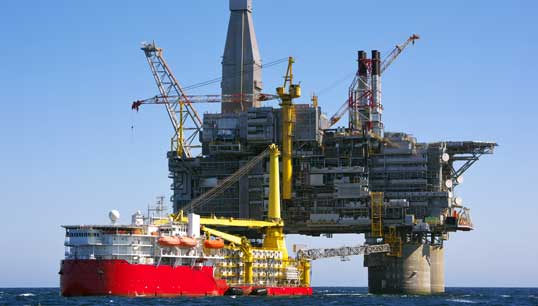
Having worked as a surveyor onboard many offshore construction and support vessels, I hear a common complaint from the bridge officers about the cost and hassle involved in obtaining and maintaining DPO [dynamic positioning operator] certification.
It is fully understood that high standards must be met for both the initial DPO training and for the CPD [continuing professional development] of existing qualified DPOs. However, the cost of the initial training course and simulator course undertaken to obtain full DPO status after completion of the qualifying DP desk time is eye-wateringly expensive.
Last time I checked it was approximately £1,800 for the initial DP induction course, not including additional travel and accommodation expenses. Then there is the cost of the DP simulator course and annual CPD courses required to maintain certification.
I understand that in the 'good old days' of high-profit oil industry employment, all these training courses were paid for by employers. However, things have changed, and DP systems are no longer restricted to offshore oil support vessels. Many more vessel types are now fitted with DP, and nowadays officers are now having to self-fund their initial DPO training to have even a chance of a trainee DPO berth with one of the few companies that still train DPOs.
All advertisements for jobs on DP ships that I have seen always require full DPO certification as a start, with no one offering the chance to train as a DPO. Three things that I note are that:
- most DPO certification is handled by the Nautical Institute (a fine organisation that does a lot of good to our industry)
- most DP equipped vessels are fitted with Kongsberg DP systems
- the NI have amended the DPO certification renewal criteria to require regular update training courses
It seems that the Nautical Institute and Kongsberg can charge these exorbitant training fees and keep moving the goal posts for qualified DPOs to keep their tickets at will, as there is no alternative.
Perhaps some healthy competition in the training and licencing of DPOs could be introduced and other licensing and training providers could be approved to bring down the costs a bit.
Membership no 179359
Nautical Institute chief executive John Lloyd responds:
The Nautical Institute welcomes the correspondence relating to our work helping to drive harmonised standards, safety and accessibility of services within the offshore energy sector. We are pleased to clarify that:
- the Nautical Institute coordinates with the DP industry to set the curriculum for DP qualifications; we audit and accredit training providers ensuring they meet the agreed industry standards. The NI does not provide DP training and has no influence on course costs
- we maintain a wide base of accredited training centres (currently 83 around the world) to allow competition in the field while maintaining standards of quality and safety
- certification processing fees are benchmarked against the cost of Certificates of Competency for similar advanced professional qualifications
- other DP certification schemes are available, although take-up is comparatively low versus the preferred NI qualification
These arrangements have helped the offshore sector achieve an enviable safety record.
More letters
Catch up with old Clan Line colleagues
The annual Clan Line reunion will take place this year at the Liner Hotel in Liverpool on Wednesday 1 October 2025.
The latest consequence of shortsighted policy-making
Having read the article about UK defence on your website, I thought it was spot on about needing to secure the future of the Merchant Navy if the government wants a defence capability.
Britain's WW2 government acknowledged Merchant Navy sacrifice
As you will know, this year marks the 80th anniversary of VE Day. I enclose a copy of a transmission, sent by telegraphy in May 1945, from the Admiralty to 'all ships', expressing the victory message to the Merchant Navy, from the minister of war transport.
